I always test my heat press and printer settings before printing a bulk order and due to which I have some substrates which have a bad outcome. Initially I was planning to throw them but then I thought of re-sublimating them and surprisingly the results were amazing.
Reprinting has enhanced the beauty of old designs and now my scrape substrates are useful.
If you also have these kinds of materials and want to enhance customization, add layered effects, make color adjustments, increase durability in a cost-effective way then sublimating over already sublimated material is a great way. Follow along to know how exactly you can do it.
What is the sublimation process?
It is a captivating process which transforms the solid substance into gas without passing the liquid phase. This unique transformation occurs when optimum pressure and temperature are met, by bypassing the liquid phase.
This process provides a lot of creative possibilities, mainly in the world of art where it offers intricate designs and vibrant colors on multiple substrates with remarkable durability and clarity. By mastering the power of dye – sub printing, you can bring the imagination of life.
Sublimation in layers: Is it possible?
Layering dye – sub printing is possible, and it is a technique which allows the creation of multi – dimensional and intricate designs. By layering various transfers, it becomes possible to achieve complex images with a range of textures, details and colors.
This method includes printing and transferring the individual dye – sub designs on the substrate and then layering one more design on the top of the first print.
The key to successful layering is careful alignment and registration of different designs to ensure precise placement and to avoid the misalignment and overlapping.
Layering dye – sub has opened the world of multiple creative possibilities to allow you to achieve dynamic and stunning visuals which truly stand out.
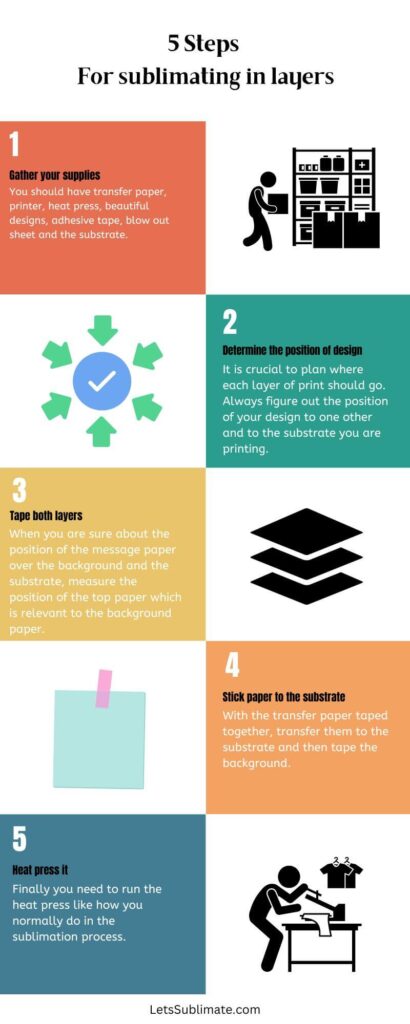
How can you sublimate over sublimation?
Whether you are printing a frame, t-shirt, mug or any other substrate, you may wish to print more than one design to create a stunning outcome.
Here are the steps for easily sublimating more than a layer of heat transfer printing.
1. Gather your supplies
For crafting a beautiful design on the substrate, you need a transfer paper, printer, heat press, beautiful designs, adhesive tape, blow out sheet and the substrate. Make sure all the items are handy before beginning the process. If you want to use any other supportive items like a pressing pillow etc. then you can do so.
2. Determine the position of design layers
It is crucial to plan where each layer of print should go. As an example, if you are printing a t-shirt having two designs, one with a background and one with some message, the final outcome should be to print the message over the background.
To achieve this kind of outcome first you should place the transfer paper with a message and on top of it you should place the background design. Ensure to place the message correctly where you want over the background image. Also, you should trim the margins of the top design paper.
Tip – if you want a high-level blending then make sure to trim very closely to the message. But if you wish the message to pop out from the background more you should leave about a quarter of an inch of transfer paper around the message.
3. Tape both layers
When you are sure about the position of the message over the background and the substrate, you should measure the position of the top paper which is relevant to the background paper.
After that remove the sublimation paper from the substrate and grab the double-sided duct tape, cut a few strips and then place them on the backside of the upper heat transfer paper.
Next, grab the top paper and adhere it where you have measured it, and it should be positioned on the background transfer paper.
Tip – Be sure to be as precise as possible about the positioning and measurements of top paper before you stick it to the background paper.
It is because you will not be able to remove it without damaging the design as the adhesive tape will pick up some colors off from the background paper.
Tip – You can follow this procedure with multiple top layers, however, be careful not to overdo it because then the design will be ruined.
4. Stick the paper to the substrate
With the transfer paper taped together, transfer them to the substrate and then tape the background (enclosing the top paper) to the shirt.
5. Heat press the sandwich
Finally, you need to run the heat press like how you normally do in the sublimation process. When you are done heat pressing, remove the transfer paper from the substrate and you should see both the designs amazingly layered without any issue.
Why should you print over already printed material?
Dye – sub layering has various benefits for the people who are looking for high quality and crisp designs. Here are four reasons why layering is a must know art form.
1. Expanded color palette
You can leverage a huge range of color by simply using different transfers for every layer. It has opened up the possibility of vibrant color combinations and enables the creation of visually stunning and eye – catching final products.
2. Enhanced complexity
This method lets you create complex and intricate designs which are visually captivating. By mixing multiple layers of transfers with each new layer you can achieve dimension, texture and depth in the artwork and give it a more realistic and dynamic appearance.
3. Personalization and customization
This creative process lets you customize and personalize the items. You can mix and match various designs, images and patterns to make a unique composition which is tailored to specific preference.
4. Increased design control
It provides great control of the designing process as you can precisely position and align every layer to achieve the required outcome. This level of control offers high accuracy.
5. Changing color
If you are not satisfied with the originally printed image or if the image is appearing faded, then you can do a second coat of dye – sub printing for a better outcome.
Best practice for sublimation in layers
You should follow before practices for layer sublimation.
1. Select right material
Make sure the material you are using is suitable for heat press printing. Items like coated ceramics and polyester are best for this method.
2. Choose high quality printer
To get the best outcome, it is mandatory to use the printer which is specifically designed for sublimation.
3. Use right transfer paper
Always remember that the quality of sublimation paper plays an important role in the final outcome. So, choose transfer paper wisely.
4. Right time and temperature settings
For successful layering, you should properly manage the pressing time and temperature to ensure correct bonding of the ink with substrate.
5. Plan the design
Plan and visualize the design before printing it. You can use any graphic design making software to do so.
Conclusion
You can easily sublimate over already printed material for making intricate and unique designs. However, it is necessary to follow the above-mentioned practices to get the layering successfully. If you have any issue in layering let me know in the comments or you can email me.
Frequently asked questions
Q – Can you sublimate over sublimation?
Yes, you can print on top of already printed substrates, but it needs careful planning of the right items like heat transfer paper, ink, heat press settings etc. for proper bonding among various layers. Also, you need to decide the positioning of designs so that the outcome looks good.
Q – Can you do sublimation layering on various materials?
Yes, layered printing can be done on various materials but it will be best if you are using 75% (or above) polyester blend materials as it will accept the ink properly. However, if the substrate is not of polyester, then you may not get the desired outcome, or you damage the material. So, always check the material before beginning the printing process.
Q – Can a tumbler be sublimated twice?
Yes, you can do dye – sub printing on a tumbler twice, but make sure that the initial layer of printing is properly bonded before the application of the second layer. If the initial layer is not printed correctly then there are chances that your second layer will not offer right outcome. In order to achieve desired outcome, you need to follow the printing steps patiently.
Q – What factors should be taken into consideration when doing layered sublimation?
Whenever you are doing layered printing then you should always look for heat press temperature and pressure ad if you will apply too much heat and pressure over an already printed materials then there are chances that initial color coating may bleed, and you may not get right results. so, always do a sample test before printing the actual substrate.
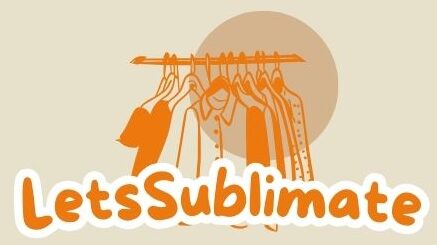

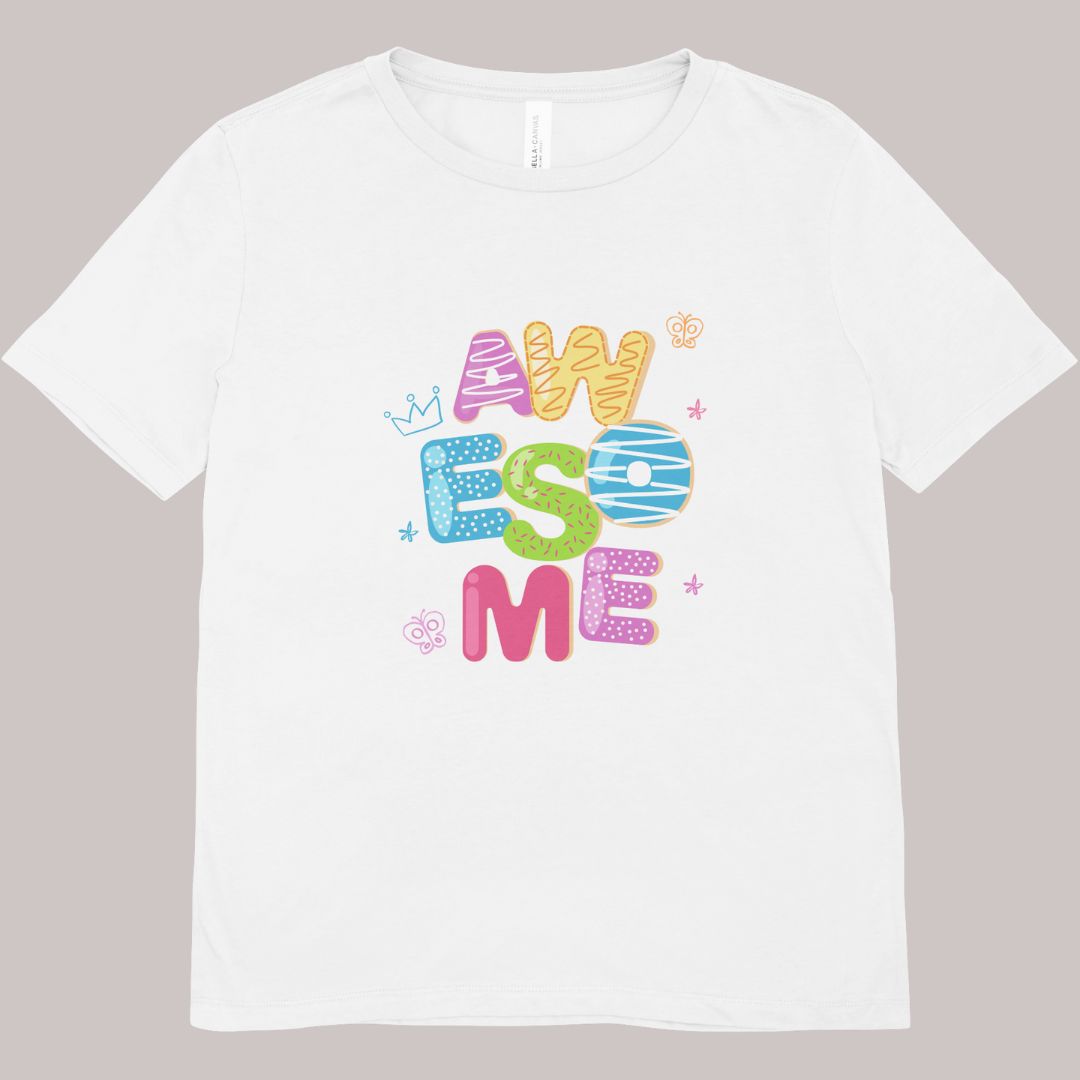
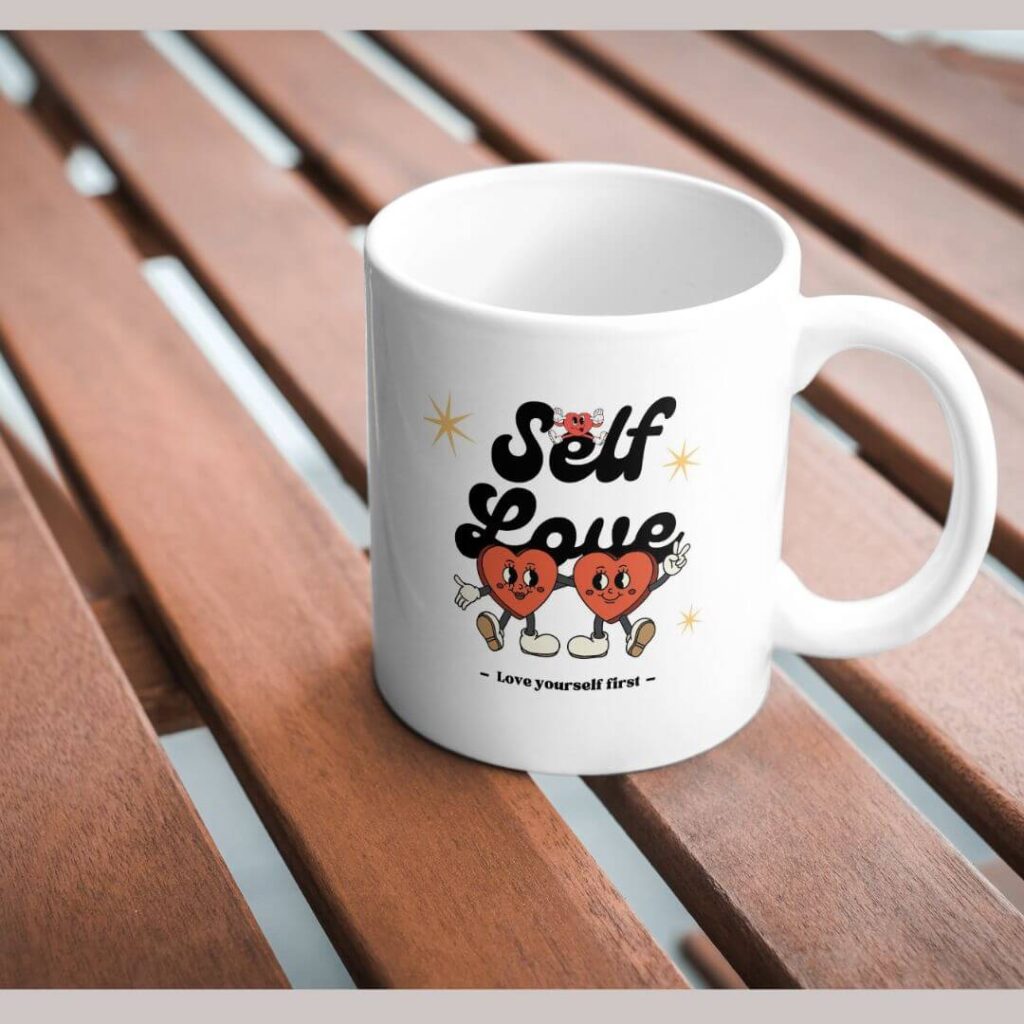
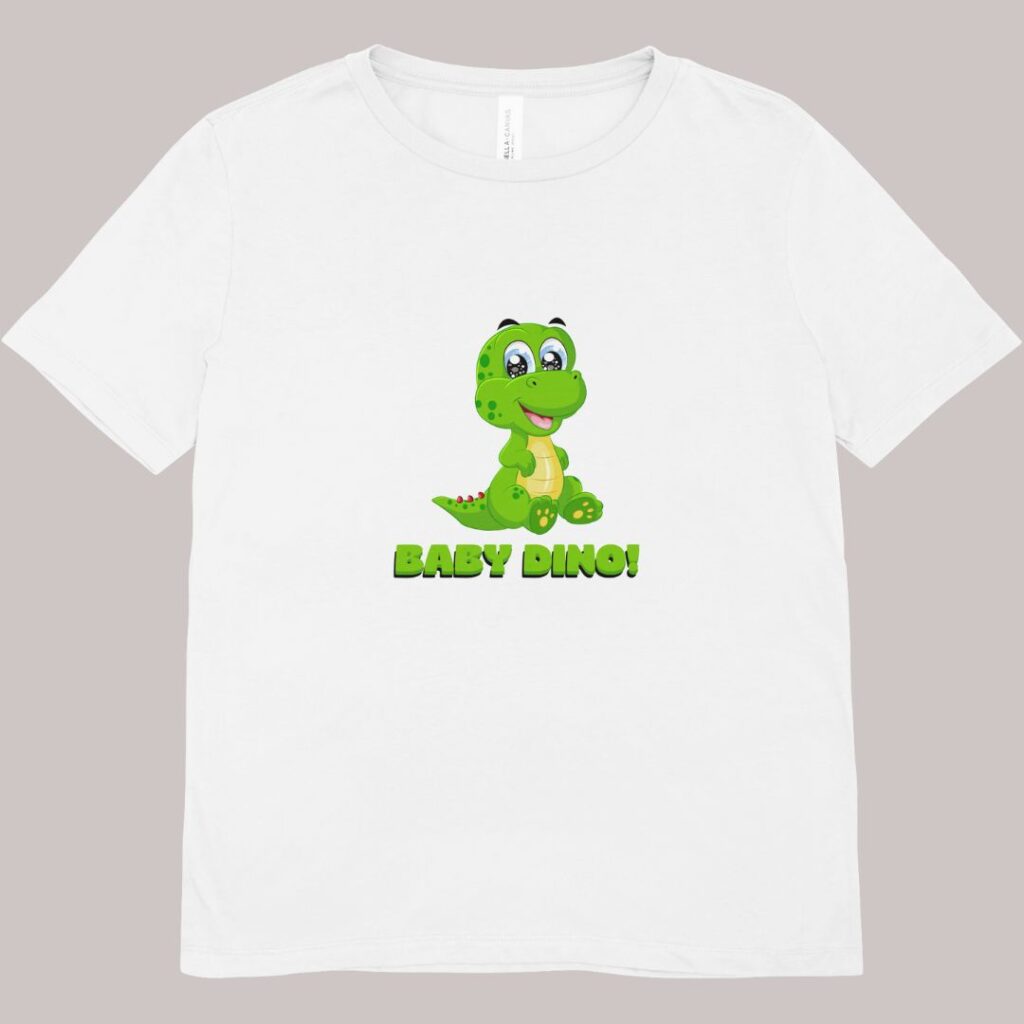

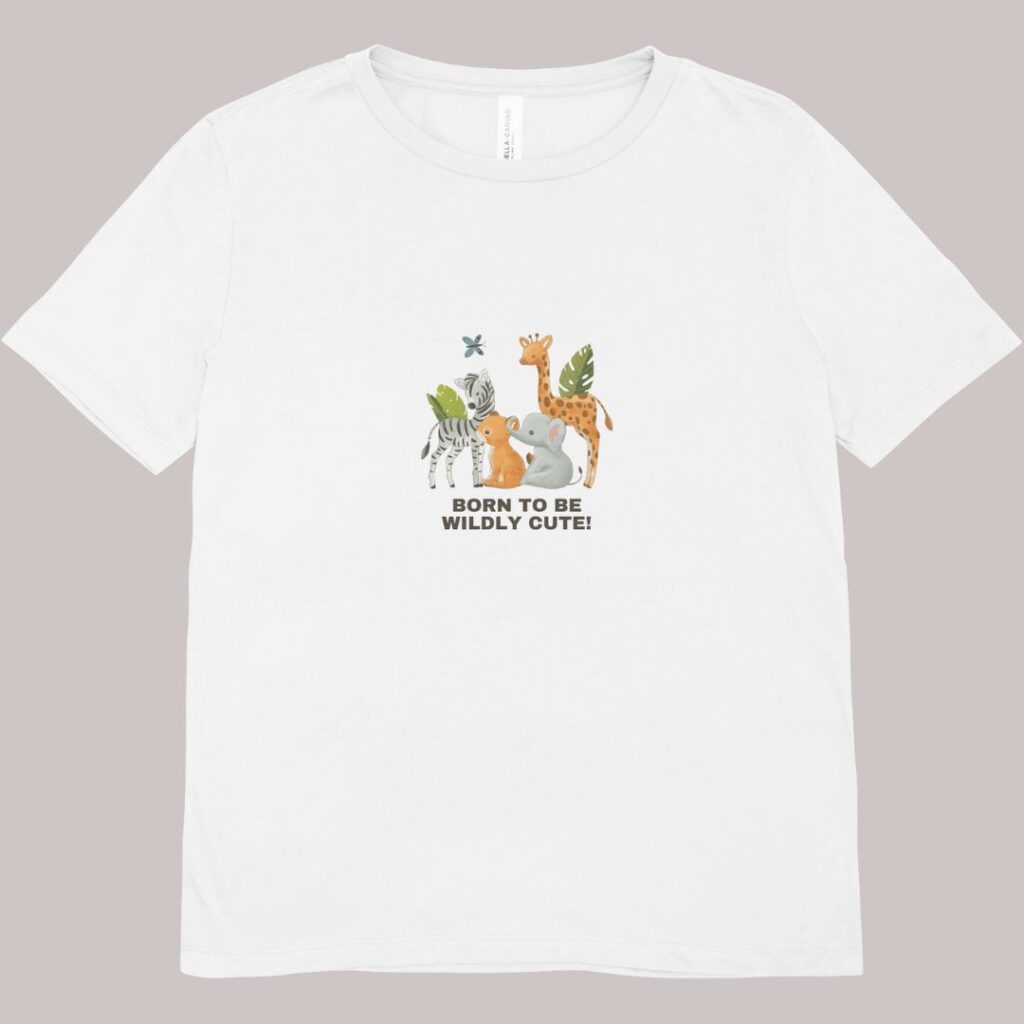
Good write-up, I’m regular visitor of one’s web site, maintain up the excellent operate, and It’s going to be a regular visitor for a long time.
What’s up, its good piece of writing regarding media print, we
all understand media is a great source of facts.